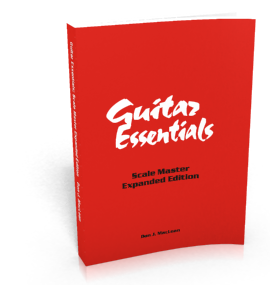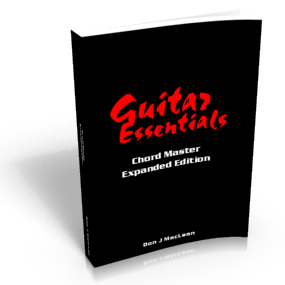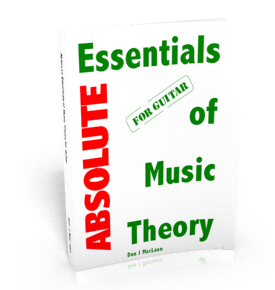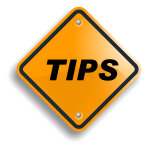How to Learn Guitar on Your Own:10 Tips for Learning Quickly and Effectively
Introduction
You’ve decided it’s time to learn to play guitar. You’ve put it off for long enough.
Now that you’re ready, the big question is: “what’s the best way to learn guitar on your own?”
The Good the Bad and the Ugly
The good news is there are many effective ways to learn guitar on your own. The bad news is there are many, many ways that can waste your valuable time.
What’s worse, if you take one of the ineffective approaches to learning guitar, you’re likely to end up feeling frustrated and possibly even quit.
Here’s the thing: anyone can learn to play the guitar.
It doesn’t matter whether you think you are all thumbs, or think you don’t have a musical bone in your body—you can still learn to play the guitar.
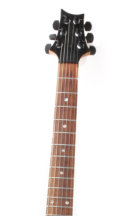 Now let me be very clear here. I’m not saying you can become a virtuoso overnight. Anyone can learn to play the guitar, but to become a world-class guitar player takes lots of hard work and dedication.
Now let me be very clear here. I’m not saying you can become a virtuoso overnight. Anyone can learn to play the guitar, but to become a world-class guitar player takes lots of hard work and dedication.
Just learning to play popular songs is easily within everyone’s reach. And it doesn’t require hours and hours, and years of practice.
In fact, with the right approach, you’ll be playing your favourite songs faster than you can imagine.
With this in mind, let’s take a look at 10 tips to help you effectively learn guitar on your own.
10 Tips to Learn Guitar on Your Own
1. Consistency
Imagine you and your best friend have decided it’s time to get into good physical shape. You both start to workout. You decide that you will workout three days a week. Your friend decides to work out five days a week.
You are able to stick pretty close to your three day per week workouts. Your friend isn’t very consistent. One week he is in the gym every day. The next week he misses all but one workout. The following two weeks he misses every workout. Then he’s back in for two workouts the next week.
Given this scenario, who do you think will be farther ahead after one month, two months and six months. Will it be you with your consistent 3 day per week workouts or your friend with his sporadic workout routine?
I’m sure you can easily guess. For the body to get into better physical condition requires consistent training. Working out here and there with huge gaps in between won’t allow for much overall progress.
This is totally true for guitar as well. The very act of playing guitar is physical as well as mental. You need to train and condition your mind and body for guitar.
It takes some time to gain the finger memory, strength, coordination, and calluses to play guitar well. The mental aspects take time to develop as well.
All of this becomes much, much easier with consistent practice. When you practice sporadically, you end up having to devote most of your practice session attempting to get your playing back to the point where you last left off. If you practice consistently, you will retain much more from your last playing session. This will allow you to progress much, much faster.
To practice consistently, it’s a great idea to set aside a specific time of day for your guitar practice.
 Determine how many days a week you can realistically practice. If you know there is no way you will be able to practice guitar everyday, don’t say you are going to practice everyday.
Determine how many days a week you can realistically practice. If you know there is no way you will be able to practice guitar everyday, don’t say you are going to practice everyday.
Once you’ve decided how many days you will practice each week, determine what time you will practice and for how long. You might decide that you will practice Monday, Wednesday and Friday for one hour each of those nights. And you might also decide that 7 pm to 8 pm will be your practice time.
When you set up specific times for playing guitar, you will find that you will begin to expect to be playing during the allotted time. It will become part of your schedule. It will become a habit. When you expect to play guitar you are much more likely to play guitar and not let other things creep in and rob you of your practice time.
Playing guitar a few days in a row and not touching the guitar for several weeks is not setting yourself up for success. When you practice consistently, you will make much faster progress than sporadic practice.
2. Learn the Most Common Guitar Chords
When you look at most popular songs, you will find that 80% or more of each song is devoted to rhythm guitar playing.
If you already know how to play the most common guitar chords, you just need to learn the strumming patterns and the order that chords occur, and presto—you’ve got most of the song mastered.
Now you can see why learning the most common guitar chords is a major time saver!
3. Learn the Most Common Guitar Scales
The other 20% of songs is devoted to playing riffs (short melodic phrases) and guitar solos.
This is where knowing your basic scales will dramatically shorten your learning curve.
Guitar solos are built from scales. If you already know how to play the scale that is used in the guitar solo, then all you need to do is learn the order that these scale notes are used in the guitar solo. This makes learning guitar solos much, much easier.
It also means the guitar solos will make sense to you. It won’t seem like you are just trying to learn a bunch of random notes. When you know the scale, you can actually see where the guitar solo is coming from.
 In this tutorial, we have begun our look at how to learn guitar on your own. This just scratched the surface of effective things you can do to learn guitar on your own. In part 2 of this tutorial series we will look at some additional important tips for learning the guitar fast.
In this tutorial, we have begun our look at how to learn guitar on your own. This just scratched the surface of effective things you can do to learn guitar on your own. In part 2 of this tutorial series we will look at some additional important tips for learning the guitar fast.
Below you will find some resources so you can get more information on the tips covered in this tutorial.
Recommended Resources
To learn guitar fast, I recommend that you use a guitar method that incorporates accelerated learning techniques and the tips we will cover in this tutorial series. With this in mind, I would recommend you check out my beginner guitar course called The EDGE: CORE Beginner Guitar Lessons. You can learn more about it here:
 The EDGE: CORE Beginner Guitar Lessons
The EDGE: CORE Beginner Guitar Lessons
If you’ve already been playing for a while and are looking to fill in some gaps in your knowledge, here are some of my other courses that will improve your guitar playing in the key areas we looked at in this tutorial.
To learn and master beginner to intermediate guitar scales check out Guitar Essentials: Scale Master Expanded Edition.
To learn the most important guitar chords, consider Guitar Essentials: Chord Master Expanded Edition.
To totally understand guitar theory and apply it to the guitar, check out the Absolute Essentials of Music Theory for Guitar.
Have fun playing guitar, and see you in part 2 of this series.

